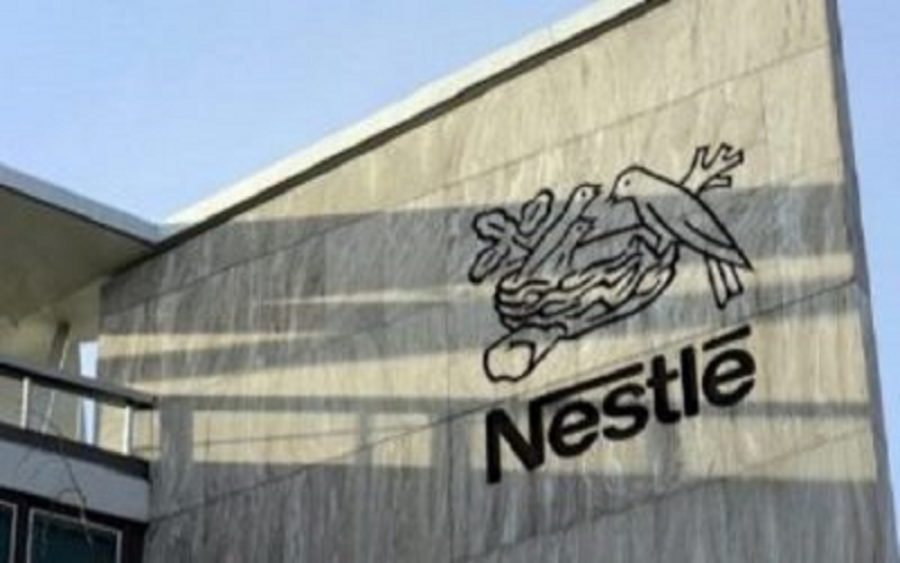Economy
Nestle Assures Consumers Value Despite N184.3bn Loss in Nine Months

By Aduragbemi Omiyale
Despite incurring more losses as a result of the challenging operating environment caused by inflationary pressures, which have weakened the purchasing power of consumers, Nestle Nigeria Plc has promised not to tamper with its quality, assuring value for money.
In the first nine months of 2024, the company recorded a loss after tax of N184.3 billion compared with the N43.1 billion loss posted in the same period of 2023.
The firm, in its financial statements for the period under review, blamed the devaluation of the Naira for this loss, which also led to a pre-tax loss of N255.4 billion versus the loss before tax of N148.2 billion achieved in the first nine months of last year.
Amid these losses, Nestle emphasised that, “Our priority remains creating value for our consumers by providing the nutritious foods and beverages they know and love.”
The firm expressed confidence that it would navigate this murky water through “efficient operations and innovation” as well as more investments in its employees.
Business Post reports that Nestle has a ray of hope in the Nigerian market as its revenue increased between January and September 2024 to N665.3 billion from N396.6 billion, with gross profit rising to N206.3 billion from N160.2 billion.
However, the revaluation of the company’s foreign currency obligations, triggered by the Naira devaluation, elevated its finance costs to N366.2 billion from N148.2 billion.
But the chief executive of Nestle Nigeria, Mr Wassim Elhusseini, stated that the improvement in the gross earnings and operating profit show that the company’s brands are doing well at the market despite the challenges faced by consumers.
“We are also pleased with the positive impact of new products introduced over the past 18 months, including Maggi Signature Jollof, Maggi Soya Chunks, NIDO Milk and Soya, Milo 3-in-1, and Cerelac Rice, among others,” he said.
He said further that, “To meet growing consumer demand, the company has made significant investments in new capacities and technologies across its operations.”
Economy
Dangote Refinery Shares to be Available to Public in Five Months

By Adedapo Adesanya
The chairman of Dangote Group, Mr Aliko Dangote, has said that within the next five months, Nigerians should be able to purchase shares of Dangote Petroleum and Refinery.
Mr Dangote made this revelation on Sunday during a tour of the facility by the chief executive of the Nigerian National Petroleum Company (NNPC) Limited, Mr Bayo Ojulari, alongside members of the company’s executive management.
The $20 billion refinery is the largest single-train refinery in the world with 650,000 barrels per day refining capacity. There are efforts to boost the capacity to 1.4 million barrels per day soon.
Speaking with journalists, Mr Dangote said, “And the other issue is that they (NNPC) are holding 7.25 per cent of the shares that we have here, which is more than the shares Elon Musk has in Tesla. And they are holding that on behalf of Nigerians,” he said.
“So individually, Nigerians too will have an opportunity in the next, maybe a maximum of four to five months. There will actually be an opportunity to buy the shares.”
He added that shareholders will have the option to receive their dividends in either naira or dollars, as the refinery also earns in dollars.
Commenting on Mr Ojulari’s visit, the billionaire businessman said the NNPC, represented by Mr Ojulari and its management team, was not just a guest but a shareholder.
“Today is really our best day ever” at the facility. I know NNPC invested in us when we were not really sure whether the refinery would be successful.
“So that’s the kind of level of confidence. But right now, the relationship with the new set of people that we have at NNPC, I think the sky is the limit, and we will cooperate and also make sure that we work together to make sure that we make Nigerians proud.”
Speaking on prospects of partnership with NNPC in the upstream sector, he said, “We have block 71, 72, but we’re going to look much deeper”.
“Most likely, depending on our own discussions with them, we will partner with them, maybe in some of the upstream. They, too, will partner with us here because here is not just a refinery, it’s an industrial hub.
“And that’s why we’re doing linear alkaline benzene, which is a raw material for detergents, ” he added.
Economy
NGX Investigates Zichis Stocks After 859% Rise in One Month

By Aduragbemi Omiyale
The Nigerian Exchange (NGX) Limited has launched an investigation into trading activities on the shares of Zichis Agro-Allied Industries Plc.
A notice from Customs Street on Monday disclosed that this has led to the suspension of the company for now.
This development comes about a month after Zichis was listed on the domestic bourse and placed in the growth board of the NGX.
In the circular, it was disclosed that the suspension may be lifted after the conclusion of the findings, but for now, investors will not be able to trade the organisation’s securities on the NGX platform.
“The suspension of trading in Zichis shares shall be lifted upon the conclusion of an investigation into the trading activities on the company’s shares,” a part of the disclosure stated.
The bourse explained that it wielded the big stick on Zichis in compliance with Rule 7.0, Rules on Suspension of Trading in Listed Securities, Rulebook of The Exchange (Issuers’ Rules).
This part of the law states that, “Notwithstanding any of the foregoing provisions, the exchange may, in accordance with any of its rules, place the trading of any security on suspension.
“It may also do so if it is of the view that such suspension will be in the interest of the investing public and in accordance with the SEC Rules.”
In announcing the action on the firm, the NGX declared that, “The shares of Zichis Agro-Allied Industries Plc have been suspended from trading on the facilities of Nigerian Exchange Limited (NGX), effective today, Monday, February 23, 2026.”
Business Post reports that last week, shares of Zichis appreciated by 60.74 per cent to N17.36. It joined the stock exchange at N1.81, indicating it has gained N15.55 or 859.12 per cent in one month.
Economy
Nigeria Investment Fund, Japan Unveil $50m Innovation Fund for Startups

By Adedapo Adesanya
The Nigeria Investment Authority (NSIA) and Japan International Cooperation Agency (JICA) have finalised agreements to launch a $50 Sovereignmillion impact innovation fund aimed at strengthening the Nigerian start-up ecosystem.
The fund is expected to provide patient capital to pre-seed, seed, and early-stage startups addressing critical social challenges in sectors such as agriculture, healthcare, education, energy, waste and water management.
JICA will provide $14 million in grant support, while NSIA contributes up to $20 million to match the grant.
Structured as an onshore public fund, the initiative combines financial support with technical assistance to help startups refine products, scale operations, and expand into new markets.
The fund is expected to create jobs, improve livelihoods, and contribute to sustainable economic development across Nigeria.
Speaking at the agreement signing ceremony between NSIA and JICA at the Ministry of Budget and Economic Planning, Mr Aminu Umar-Sadiq, the chief executive of NSIA, said: “The Fund represents a transformative step for Nigeria’s startup ecosystem. By providing early-stage ventures in high-impact sectors with the capital and support they need to grow, we are enabling innovators to tackle some of Nigeria’s most pressing challenges. Our collaboration with JICA underscores our commitment to entrepreneurship, inclusive growth, and sustainable development.”
Preparations are underway to operationalise the Fund and develop a pipeline of high-impact startups ready for investment. NSIA remains committed to advancing socio-economic development through strategic partnerships that scale impact, expand innovative solutions, and unlock access to capital.
On his part, the Japanese Ambassador to Nigeria, Mr Suzuki Hideo, said, “The Government of Japan hopes this new project will take root in Nigeria and bear fruit swiftly.”
-

 Feature/OPED6 years ago
Feature/OPED6 years agoDavos was Different this year
-
Travel/Tourism10 years ago
Lagos Seals Western Lodge Hotel In Ikorodu
-

 Showbiz3 years ago
Showbiz3 years agoEstranged Lover Releases Videos of Empress Njamah Bathing
-

 Banking8 years ago
Banking8 years agoSort Codes of GTBank Branches in Nigeria
-

 Economy3 years ago
Economy3 years agoSubsidy Removal: CNG at N130 Per Litre Cheaper Than Petrol—IPMAN
-

 Banking3 years ago
Banking3 years agoSort Codes of UBA Branches in Nigeria
-

 Banking3 years ago
Banking3 years agoFirst Bank Announces Planned Downtime
-

 Sports3 years ago
Sports3 years agoHighest Paid Nigerian Footballer – How Much Do Nigerian Footballers Earn

















